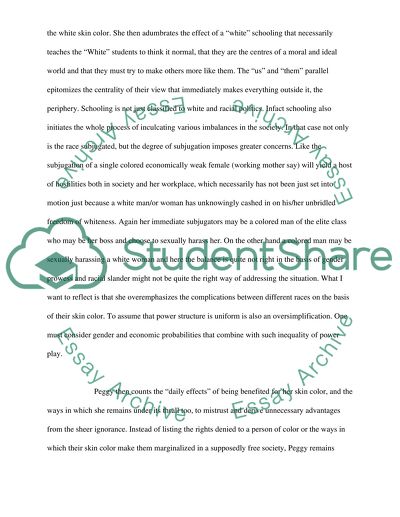Cite this document
(White Privilege and Male Privilege Assignment Example | Topics and Well Written Essays - 1750 words, n.d.)
White Privilege and Male Privilege Assignment Example | Topics and Well Written Essays - 1750 words. Retrieved from https://studentshare.org/gender-sexual-studies/1499414-peggy-mcintoshs-white-privilege
White Privilege and Male Privilege Assignment Example | Topics and Well Written Essays - 1750 words. Retrieved from https://studentshare.org/gender-sexual-studies/1499414-peggy-mcintoshs-white-privilege
(White Privilege and Male Privilege Assignment Example | Topics and Well Written Essays - 1750 Words)
White Privilege and Male Privilege Assignment Example | Topics and Well Written Essays - 1750 Words. https://studentshare.org/gender-sexual-studies/1499414-peggy-mcintoshs-white-privilege.
White Privilege and Male Privilege Assignment Example | Topics and Well Written Essays - 1750 Words. https://studentshare.org/gender-sexual-studies/1499414-peggy-mcintoshs-white-privilege.
“White Privilege and Male Privilege Assignment Example | Topics and Well Written Essays - 1750 Words”. https://studentshare.org/gender-sexual-studies/1499414-peggy-mcintoshs-white-privilege.


